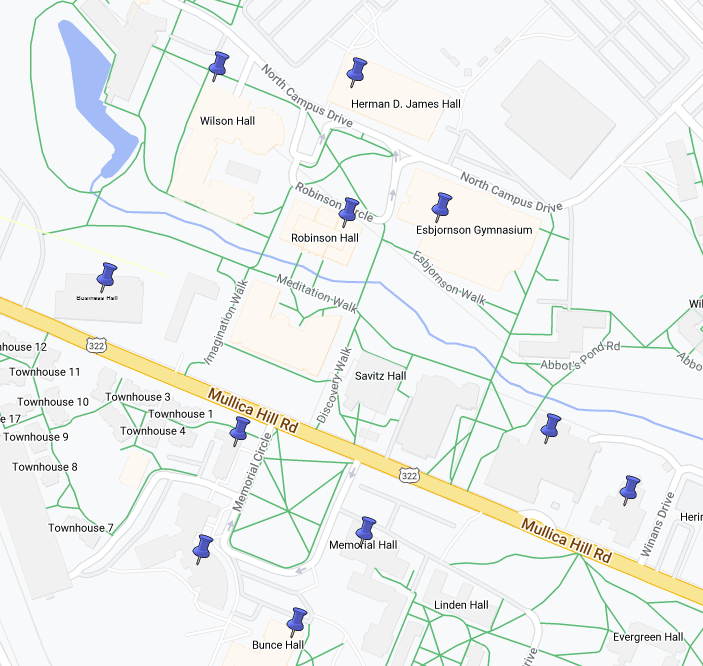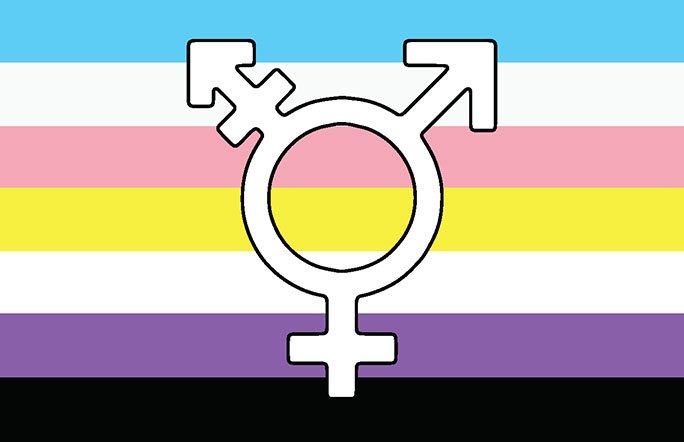At Counseling and Psychological Services. we understand and value the role that gender identity plays in an individual’s life and incorporate those identities in treatment when appropriate. Please share your preferred pronouns and name with our front-desk staff or your counselor so we can use accurate language.
Gender Identity
Gender Identity
Gender Identity
Understanding Pronouns
From https://lgbtlifecenter.org/pronouns/
"What’s a pronoun?
You may be unfamiliar with the word “pronoun,” but you use them all the time! Pronouns are used in place of a proper noun (like someone’s name). We use pronouns most often when referring to someone without using their name.
Example: Have you heard from Tom? He hasn’t texted me back all day. He is the pronoun.
Why does it matter?
In English, our most commonly used pronouns (he/she) specifically refer to a person’s gender. For queer, gender non-conforming, non-binary, and transgender people, these pronouns may not fit, can create discomfort, and can cause stress and anxiety.
A recent study showed that in transgender youth, using correct pronouns and names reduces depression and suicide risks.
Having trouble understanding why this would upset someone? Think about your pronoun (it’s probably “he” or “she”). Now imagine someone calling you the one you don’t think of yourself as. Imagine them doing it over and over and over, even after you’ve corrected them.
How can I be inclusive in using and respecting gender pronouns?
- Respecting someone’s self-identification means using the gender pronouns with which they identify. Some people go by more than one set of pronouns.
- Normalize the process of indicating your gender pronouns in everyday use with strategies such as including them in your email signature, business cards, website profile, and nametags, or using them as you introduce yourself (i.e., "My name is Tou and my pronouns are he and him. What about you?”)
- If you do not know or have not asked someone’s pronouns, try to use “they/them” pronouns.
- Ask individuals to provide their personal pronoun(s). It can feel awkward at first, but it is not as awkward as getting it wrong or making a hurtful assumption. Here are some ways you can do this:
- “What pronouns do you use?”
- “How would you like me to refer to you?”
- "Can you remind me what pronouns I should be using for you?"
- Please note that if a student, staff, or community member tells you that they do not want to disclose their pronouns or do not wish their pronouns to be public knowledge, you can refer to that person by their name only (i.e., Leo’s book is over there. Can you please hand it to Leo?).
What if I mistakenly use the wrong pronouns for someone?
- The best thing to do if you use the wrong pronoun for someone is to say something right away, such as “Sorry, I meant they.” Fix it, but do not call special attention to the error in the moment. If you realize your mistake after the fact, apologize in private and move on.
- It can be tempting to go on and on about how bad you feel that you messed up or how hard it is for you to get it right. But please, don’t. It is inappropriate and makes the person who was misgendered feel awkward and responsible for comforting you, which is not their job. It is your job to remember people’s pronouns.
- If you hear someone else using the wrong pronoun, in most cases, you may gently correct the person who made the mistake without further embarrassing the individual who was misgendered. You can say something like, “Actually, Neera uses ‘they’ for themselves.”
Pronouns Dos and Donts
Do!
- Do recognize that most people have pronouns, not just trans people, and that asking pronouns is very important, both so someone is not misgendered and so that trans people are not the only ones who will feel the need to share their pronouns.
- Do remember that some people go by more than one set of pronouns.
- Do ask people the pronouns they use for themselves whenever you ask people their name, such as when you meet someone for the first time or when you do go-arounds at meetings. Keep in mind that people may change the pronouns they go by, so it is necessary to ask pronouns in go-arounds regularly.
- Do say “the pronouns someone uses” or “their personal pronouns,” rather than “their preferred pronouns,” because the pronouns someone uses are not a preference.
- Do remember that not everyone feels comfortable indicating their pronouns at all or in every setting and no one should feel forced to do so.
- Do consider using other ways to make language more gender-inclusive, such as by using “Hey, everyone” or "How are all y'all doing?" in a group setting instead of “Hey guys!” or “Hey ladies!" or "How are you guys doing?” Browse more gender-inclusive terms.
Don’t!
- Don’t refer to pronouns such as “they/them/their” or “ze/hir/hir” as “gender-neutral pronouns.” While some people identify as gender-neutral, others see themselves as gendered in a nonbinary way. Better language is “nonbinary pronouns.”
- Don’t describe the pronouns someone uses as “preferred pronouns.” It is not a preference. The pronouns that a person uses are their pronouns and the only ones that should be used for them.
- Don’t say “male pronouns” and “female pronouns.” Pronouns are not necessarily tied to someone’s gender identity: some trans people use “he/him/his” or “she/her/her,” but do not identify as male or female, respectively.
- If you conform to (most) gender expectations and are not a transgender person, don’t indicate that you “don’t care what pronouns are used for me.” Such statements reinforce the privilege of people who are gender conforming and not transgender because these people are not going to be misgendered and thus do not need to worry about the pronouns that people use for them. It also invalidates the experiences of gender nonconforming and transgender people, many of whom struggle with getting people to use their correct pronouns."
Affirming Name
The Rowan University Preferred Name Policy enables members of the campus community, including students, faculty and staff, to use and be known by a preferred name that affirms, reflects, and/or expresses their gender, culture, and/or other aspects of their social identity in the classroom and conducting general business at the university.
Click here for students who wish to use a preferred or affirming name at Rowan.
Discrimination Resources at Rowan
Gender Neutral Restrooms

What can CPS help me with?
- Initial exploration of gender variance, gender identity, gender expression, and sexuality.
- Treatment for depression and anxiety that may occur as a result of gender questioning or exploration, coming out, managing gender binary environments, familial concerns, and other concerns.
- Support in managing discrimination, misgendering, and transphobic reactions.
- Coming out, being out, and managing identity and roles with family/friends.
- Any other care for issues and concerns related to being transgender and/or gender non-binary.
- Resources and referrals.
What resources are available to share with family and/or friends of individuals who identify as trans/non-binary?
Online Resources:
-
Transgeneration (documentary)
Books:
-
Transgender 101: A simple guide to a complex issue by Nicholas Teich
-
Helping Your Transgender Teen: A guide for parents by Irwin Krieger
-
Beyond Magenta by Susan Kuklin
-
The Gender Creative Child: Pathways for Nurturing and Supporting Children Who Live Outside Gender Boxes by Diane Ehrensaft
-
Love, Always: Partners of Trans People on Intimacy, Challenge and Resilience by Jordon Johnson (Author, Editor), Becky Garrison (Editor)



